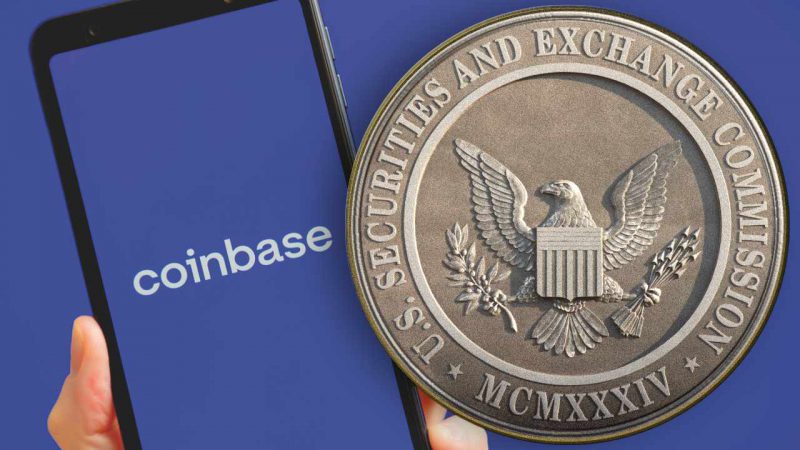Coinbase CEO Brian Armstrong recently revealed that the U.S. Securities and Exchange Commission asked the exchange to halt trading activity for all digital assets, except Bitcoin. The SEC had requested this prior to suing Coinbase last month for allegedly failing to register as a broker.
In an interview with the Financial Times, Armstrong said,
“They came back to us, and they said… we believe every asset other than Bitcoin is a security. And, we said, well how are you coming to that conclusion, because that’s not our interpretation of the law. And they said, we’re not going to explain it to you, you need to delist every asset other than Bitcoin.”
In the lawsuit against the exchange, the SEC specifically deemed 13 assets, i.e.SOL, ADA, MATIC, FIL, SAND, AXS, CHZ, FLOW, ICP, NEAR, VGX, DASH, and NEXO as securities. The agency also contended that Coinbase had never registered with the SEC as a broker, national securities exchange, or clearing agency, thus evading the disclosure regime that Congress has established for the U.S. securities markets.
Also Read: SEC Sues Coinbase, Citing U.S. Securities Law Violations
We did not have a choice at that point: Armstrong
In the interview, Armstrong said that if Coinbase followed these instructions, that would have sent a wrong message. In such a scenario, most American crypto businesses would have been deemed to be operating outside the law, unless they were registered with the commission. He said,
“We really didn’t [did not] have a choice at that point, delisting every asset other than Bitcoin, which by the way is not what the law says, would have essentially meant the end of the crypto industry in the US. It kind of made it an easy choice… let’s [let us] go to court and find out what the court says.”
The industry got some clarity on the security and non-security subject recently. The judge in the SEC-Ripple case declared XRP as a non-security. The sales on exchanges; sales by employees; distributions to developers, charities, etc. were off the radar. Nevertheless, the judge ruled that the institutional sales of the tokens violated federal securities laws. This will now be contested in court again during subsequent proceedings. After Ripple’s partial victory, several industry proponents, including top lawyers, believe the ruling will benefit the Coinbase lawsuit.
Also Read: India: BlackRock, Jio to Launch Digital Asset Venture





